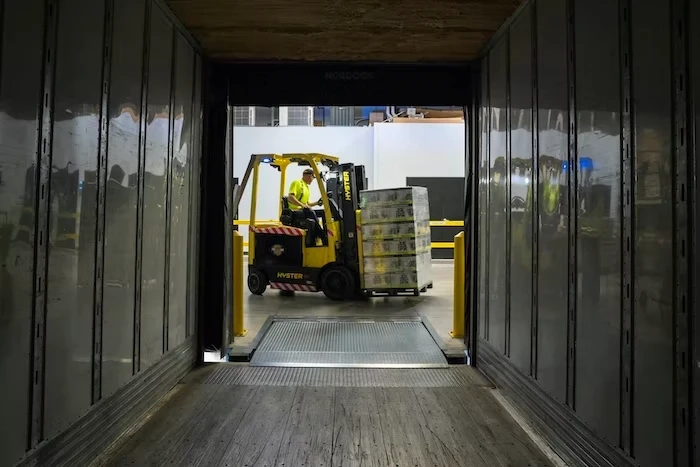If you’re in the market for a forklift, you may be wondering whether it makes sense to purchase a used or new forklift. This is always one of the main decisions when acquiring material handling equipment. Of course, there’s no right or wrong answer; it’s all about figuring out what’s right for your organization. In this article post, we’ll go over five of the key differences between a used and a new forklift to help you make your decision.
Cost: Naturally, there is only one place to begin when discussing the differences between new and used forklifts, and this is with the cost. It’s quite simple: a new forklift is almost always going to be more expensive than a used forklift. A used forklift could present considerable cost savings at the time of purchase. However, don’t forget to consider any expenses you may encounter along the way. Later in this post, we’ll touch more on maintenance and repairs. Nonetheless, it’s only natural to assume you’ll have greater repair bills if you go down the used route, as the forklift has already been put through its paces.Therefore, you need to weigh the initial costs against the lifetime costs when you’re considering whether a used or new forklift is right for you.
Efficiency: Next, efficiency is another key differentiator between used and new forklifts. After all, if you opt for a new model, the chances are that it’s going to have the latest technology and best functionality. Also, as the forklift has not been used before, none of the parts will be worn, and you’ll get optimal performance. This is not typically the case when you go down the used route, which is why the price is lower, of course. This is not to say you shouldn’t go down the used route, but always make sure you inspect the forklift properly first so you can be sure it doesn’t have too much wear and tear.Warranty: You’re not guaranteed a warranty if you go down the used route. However, if you purchase a new forklift, you will typically get a warranty that lasts somewhere between 12 and 36 months. This can give you peace of mind because if something does go wrong, you know you’re covered for this period of time. Maintenance: You also need to consider the maintenance requirements when you go down the used route. This links to the former point about the warranty. After all, if you buy a new machine, you don’t have to worry about repair bills throughout the warranty period - that’s for sure. Furthermore, you’re less likely to run into problems if you opt for a new forklift. With a used forklift, you will need to make sure you have more space in your budget for any repairs that you run into. Now, this is not to say that the used forklift is going to be a poor financial decision. If you carefully assess the forklift before you purchase it, you should get a forklift that’s efficient and performs well. Nevertheless, it’s only natural that something that has been used before is likely to have more issues than a forklift that’s never been used.Therefore, you may need to invest a little bit more time and money into maintaining a used forklift than a new one, so do keep this in mind!
Choice: Last but not least, another difference between the used and new markets is the choice of machines that are available. In the used market, you’ll be able to access models that have since been discontinued, meaning they’re no longer available as new machines.Furthermore, when you go for a used forklift, as the cost is lower, you will have a wider range of choices. Therefore, you may be able to get a forklift that you wouldn’t otherwise be able to afford if you went down the new route.
So, Will You Buy A New Forklift Or A Used One?
We hope that this blog post has given you a better idea of what to expect when you buy a used forklift in comparison with purchasing a new one. As mentioned in the introduction, there is no right or wrong answer. It’s all about figuring out what makes the most sense for your business.


